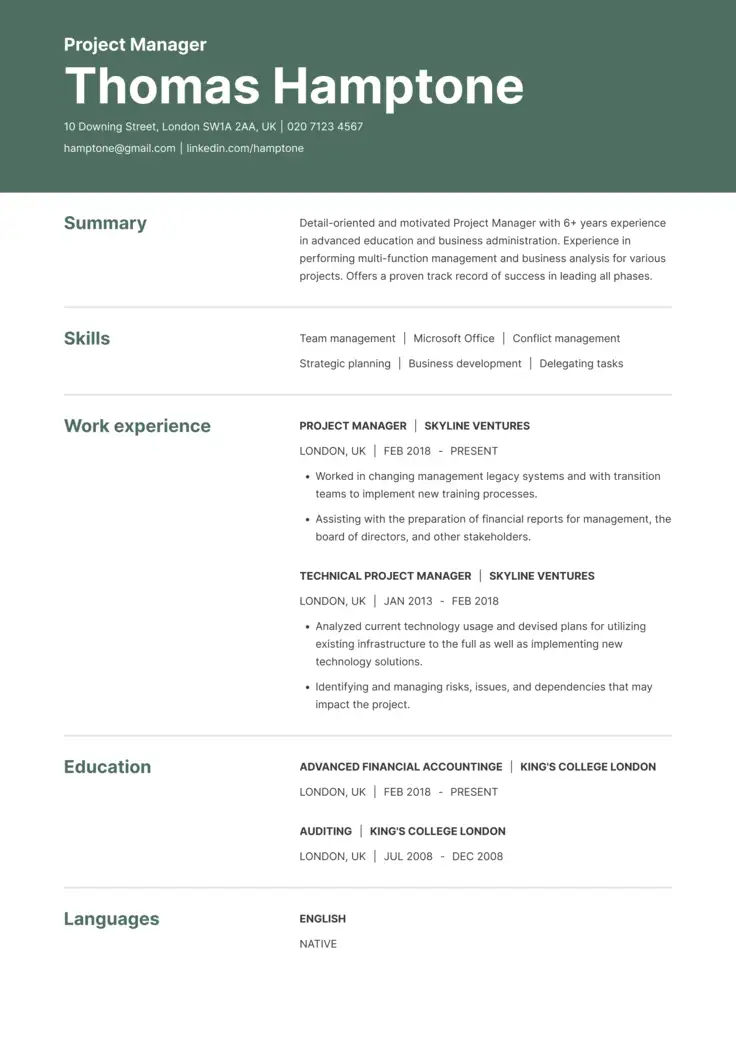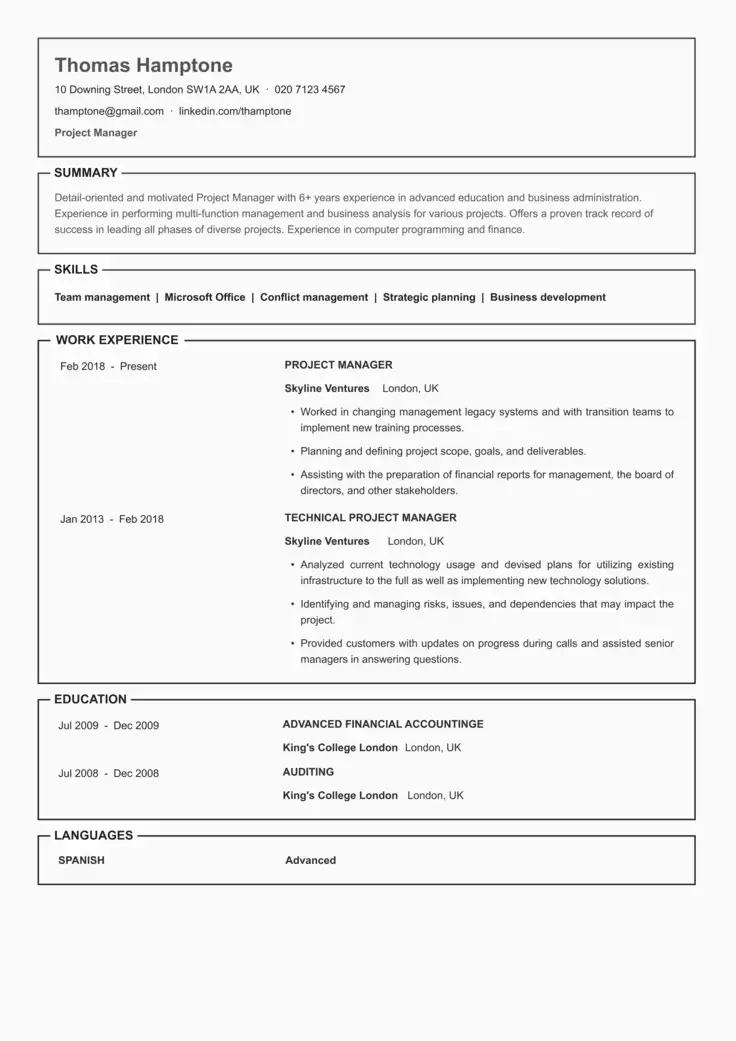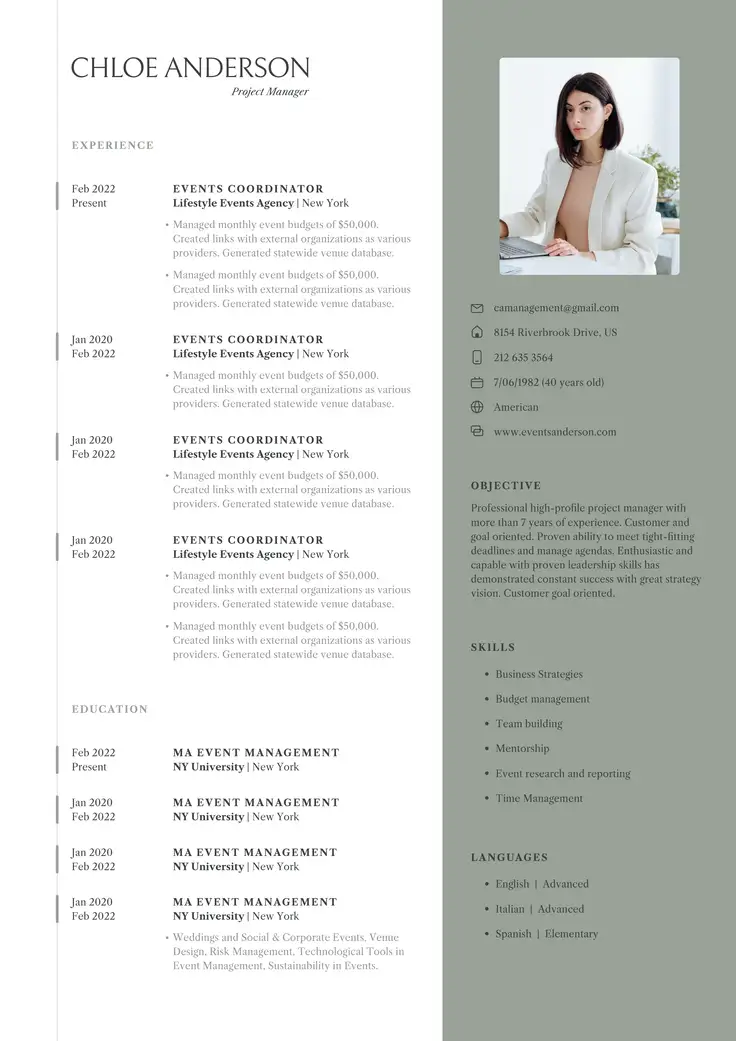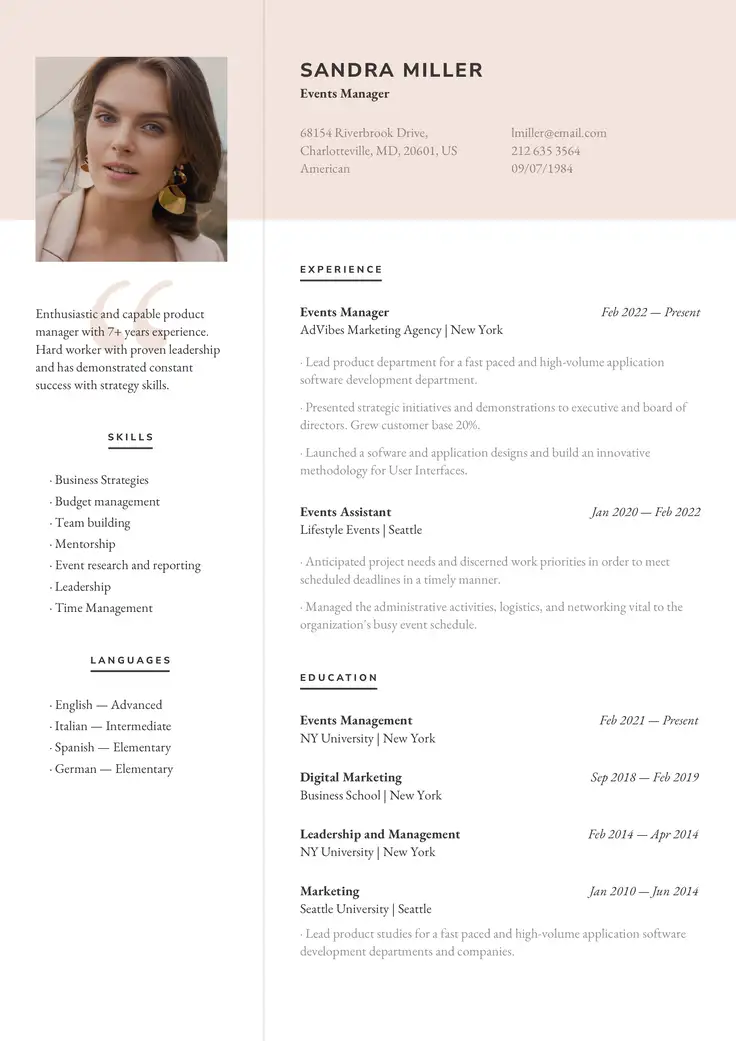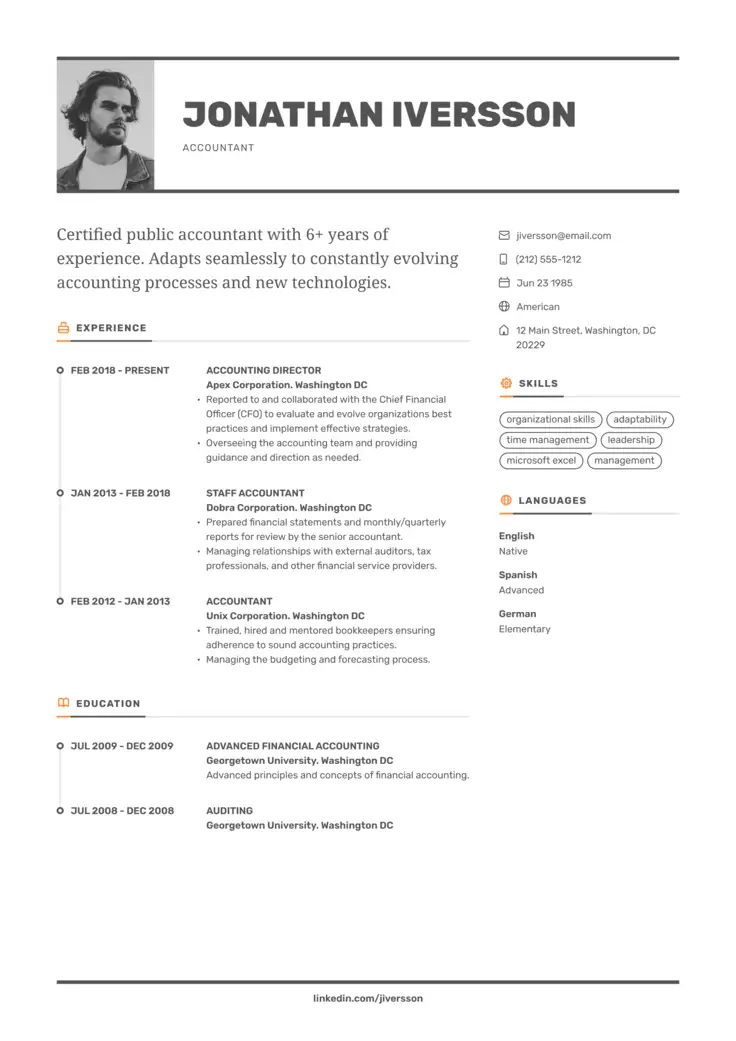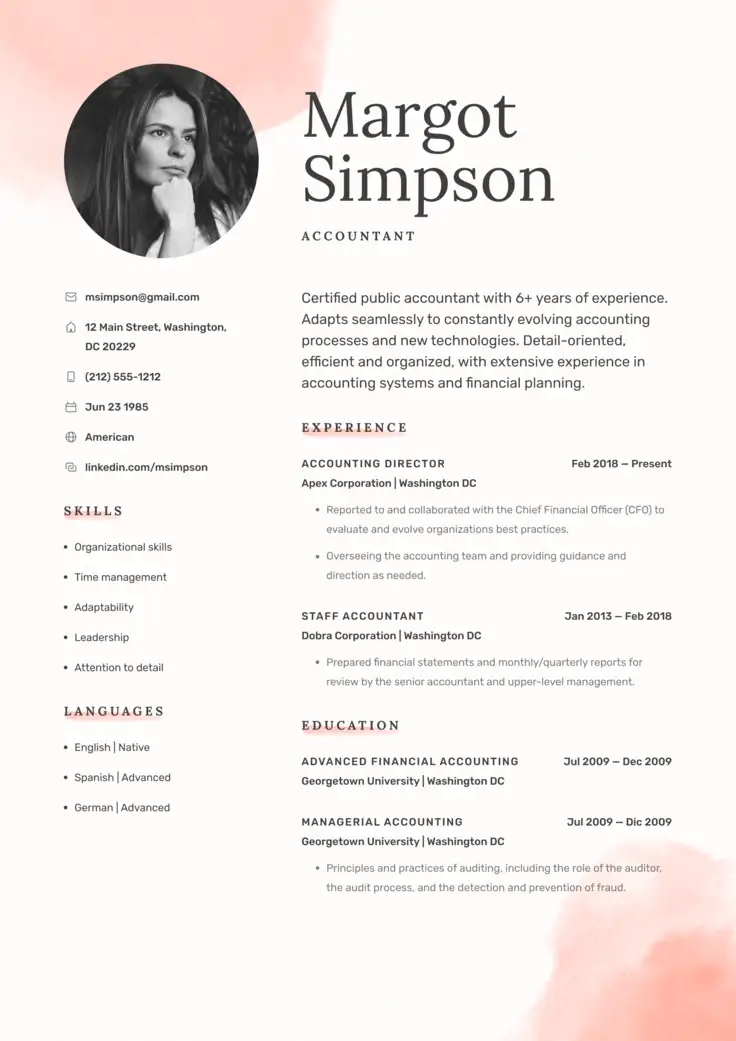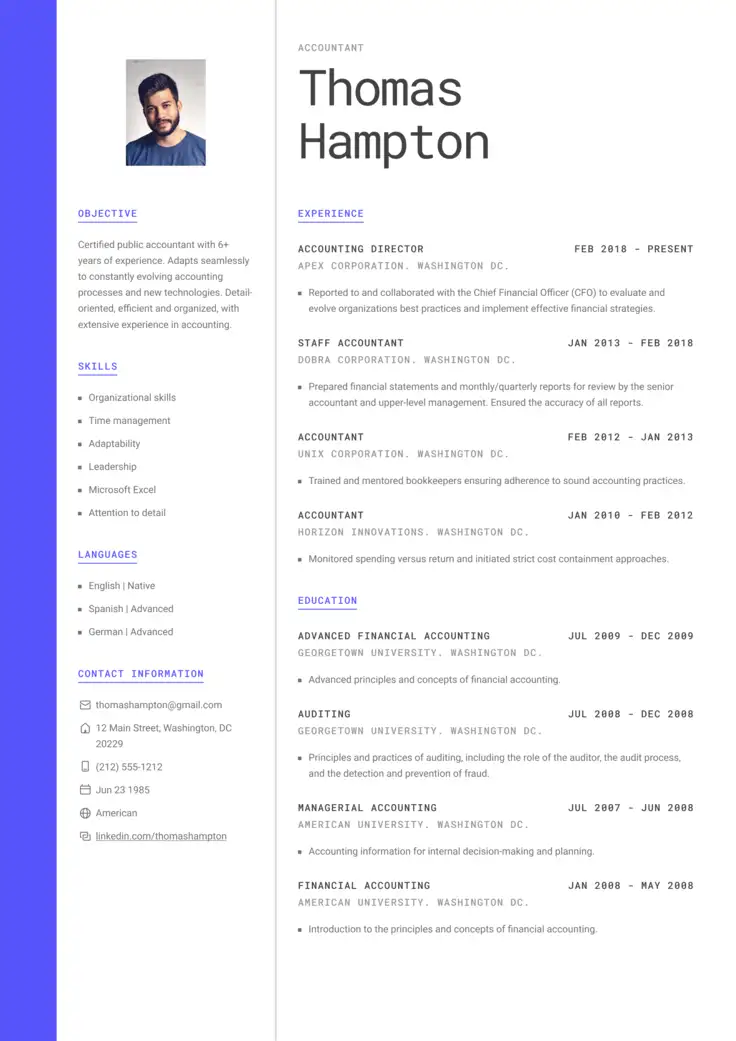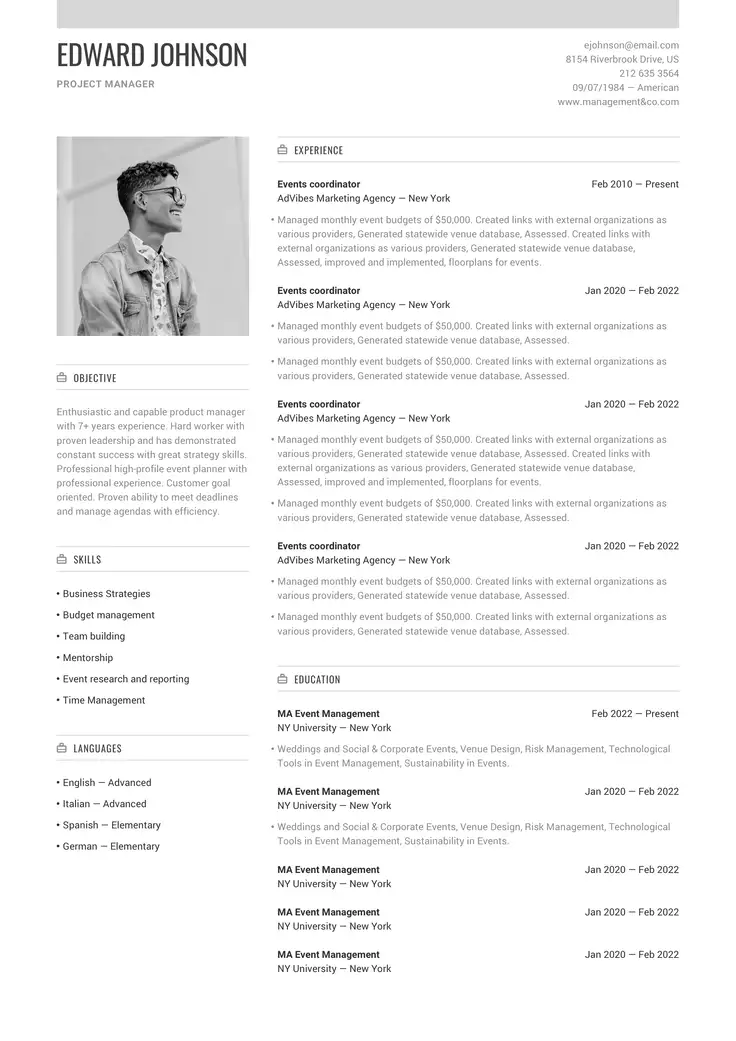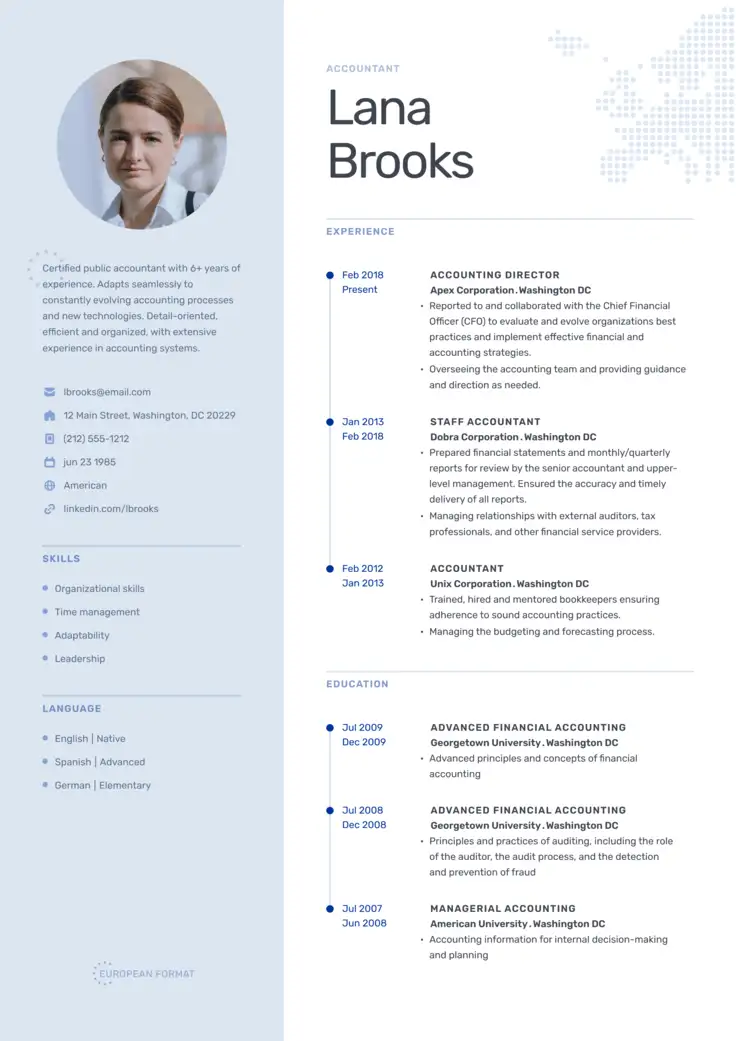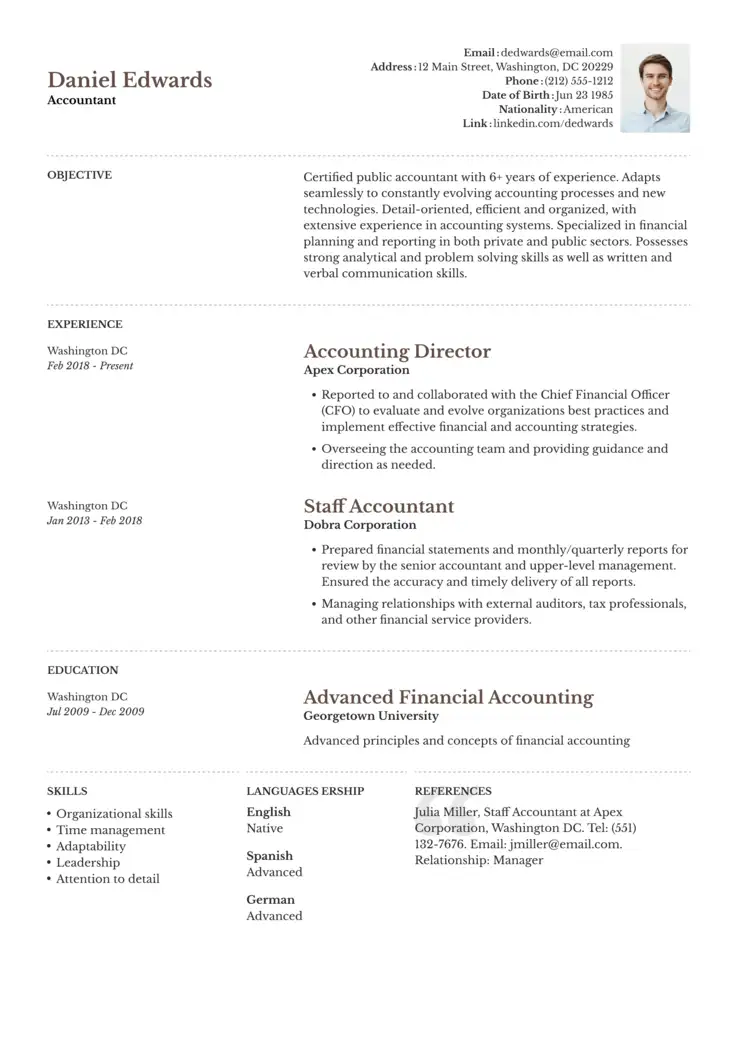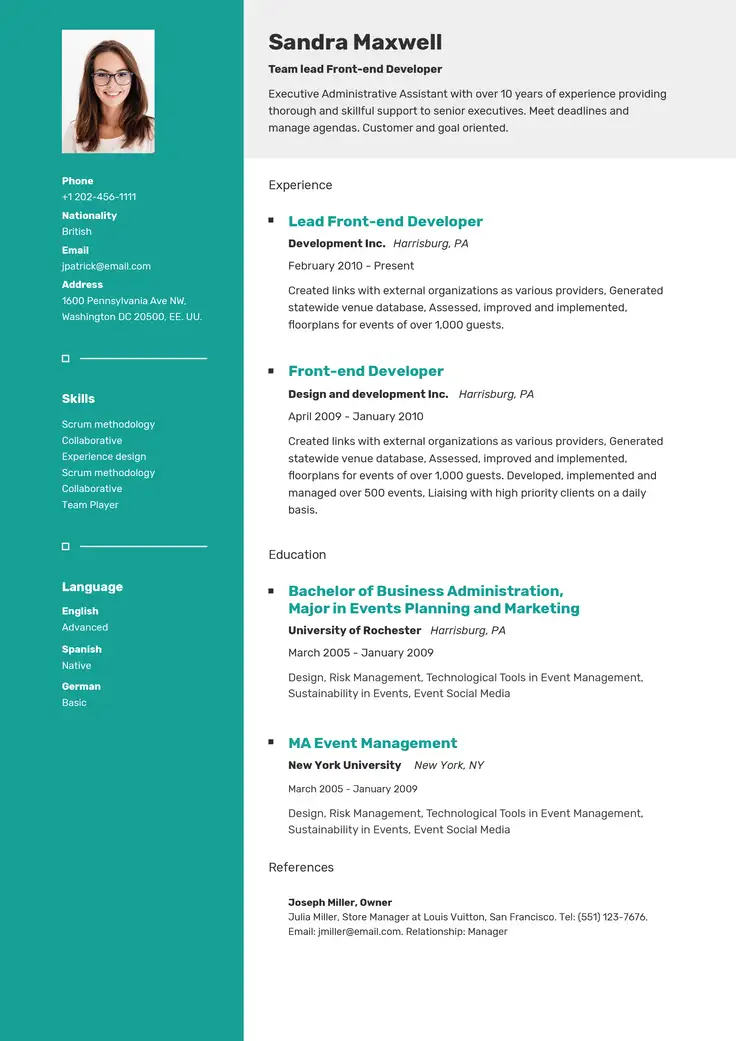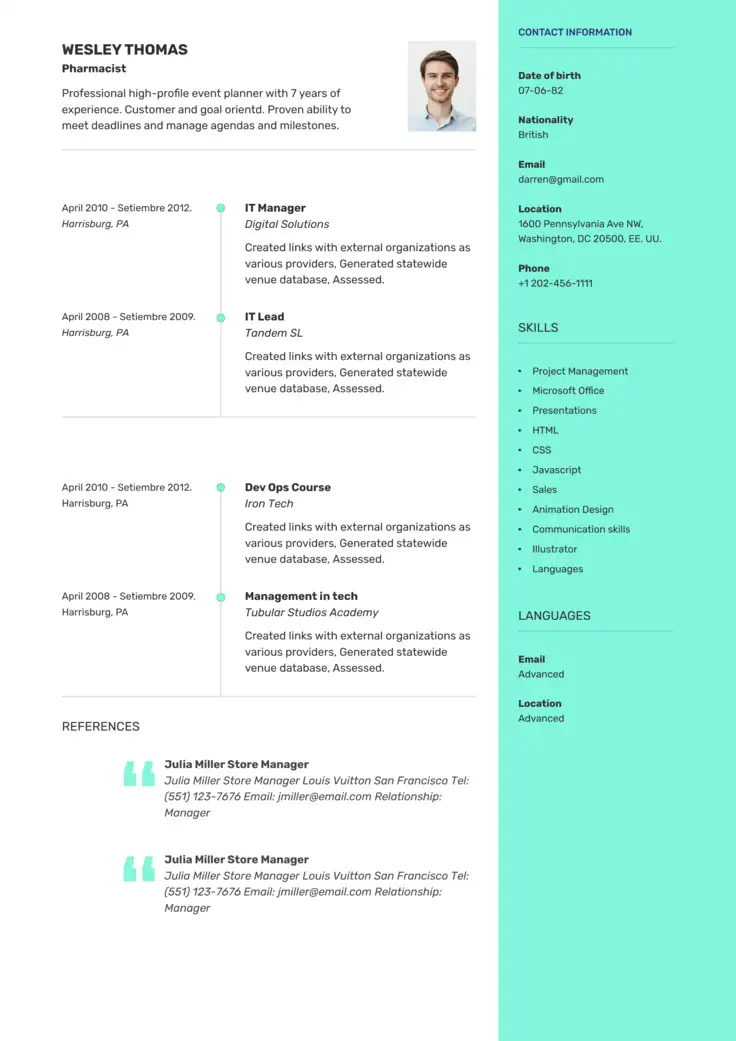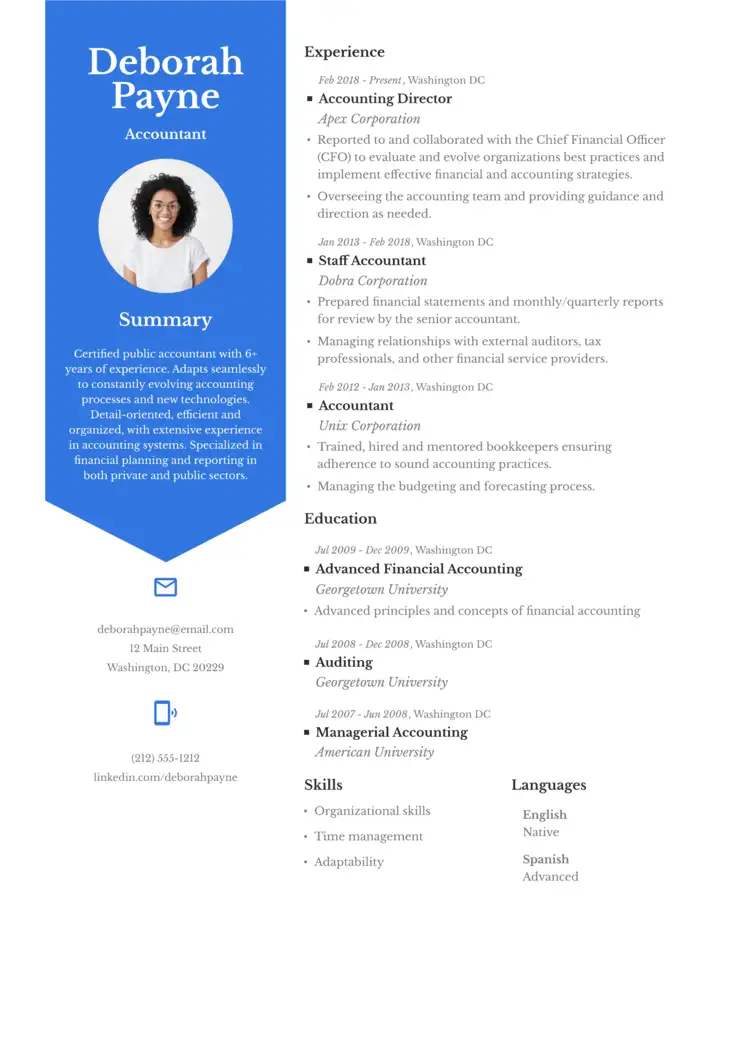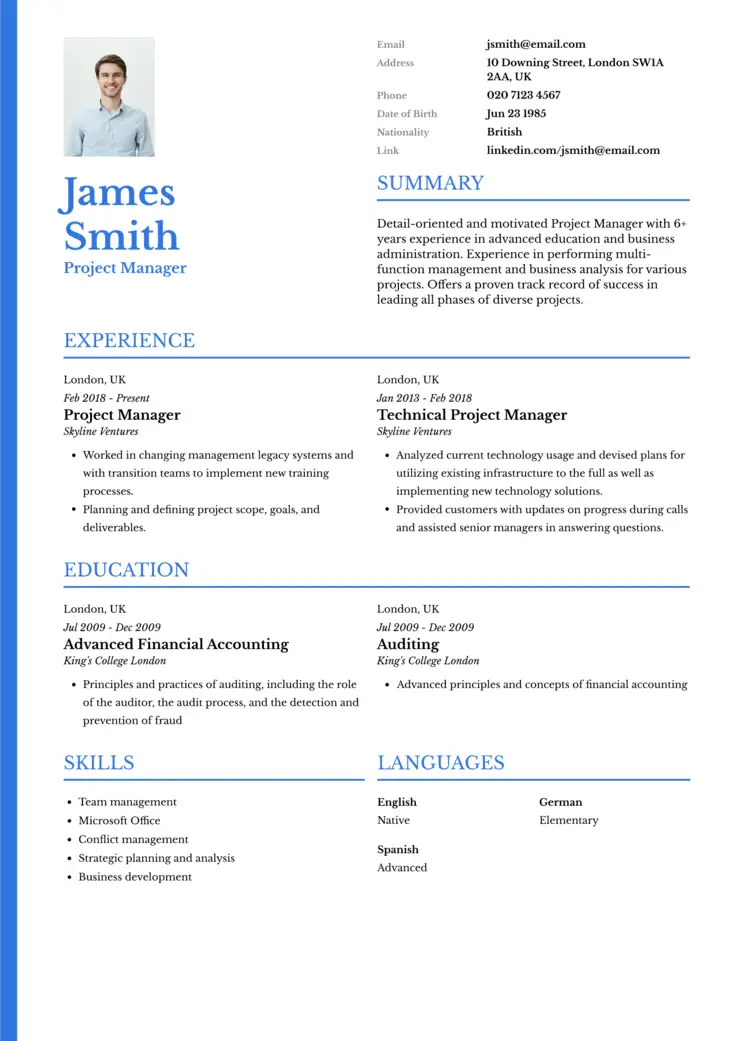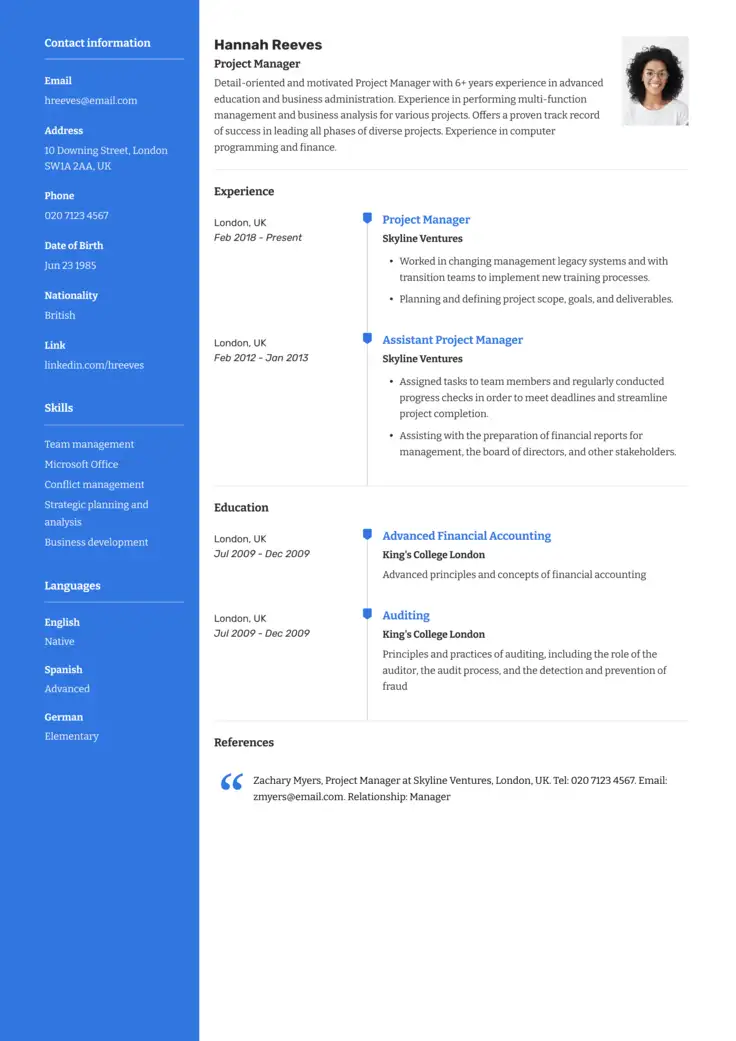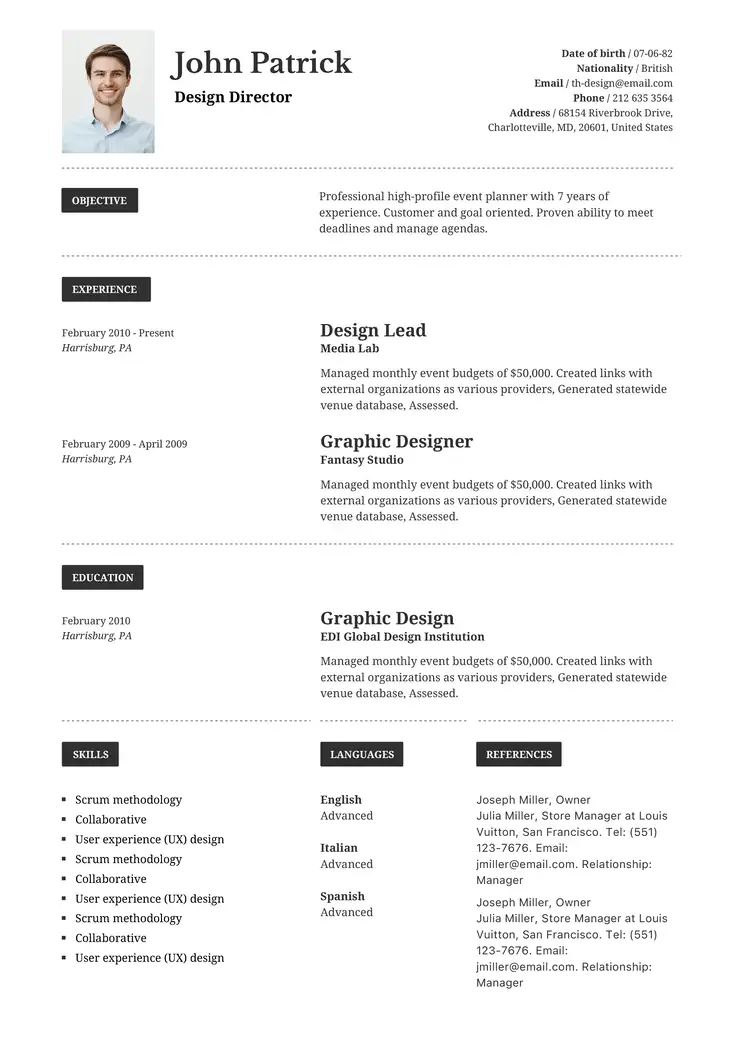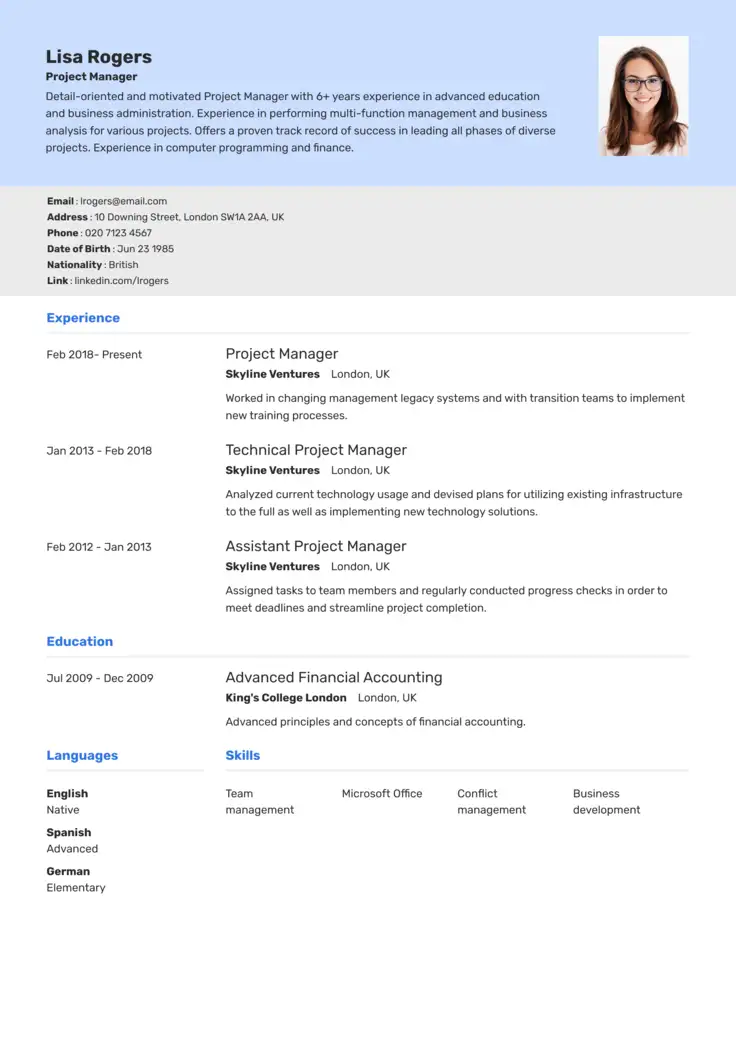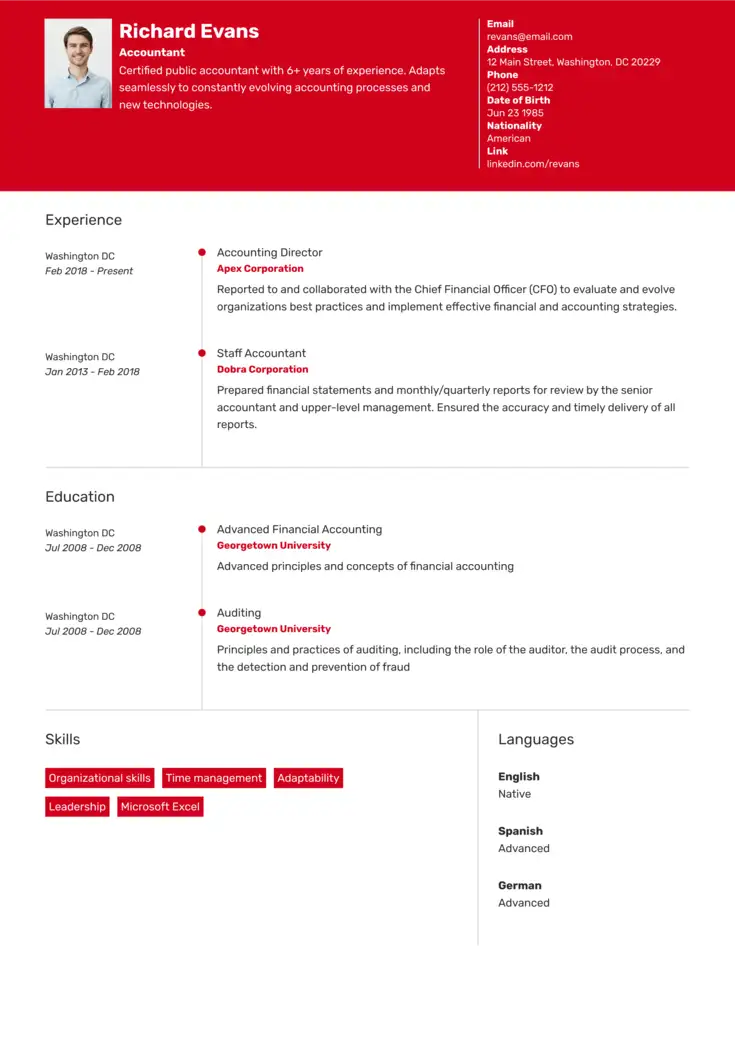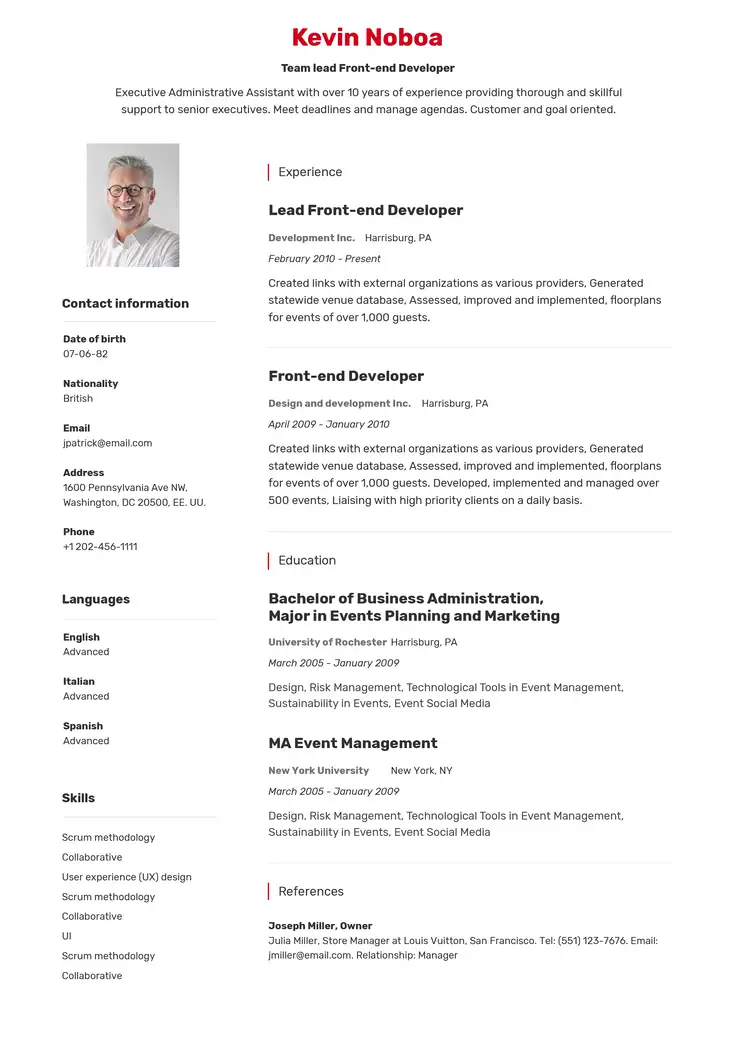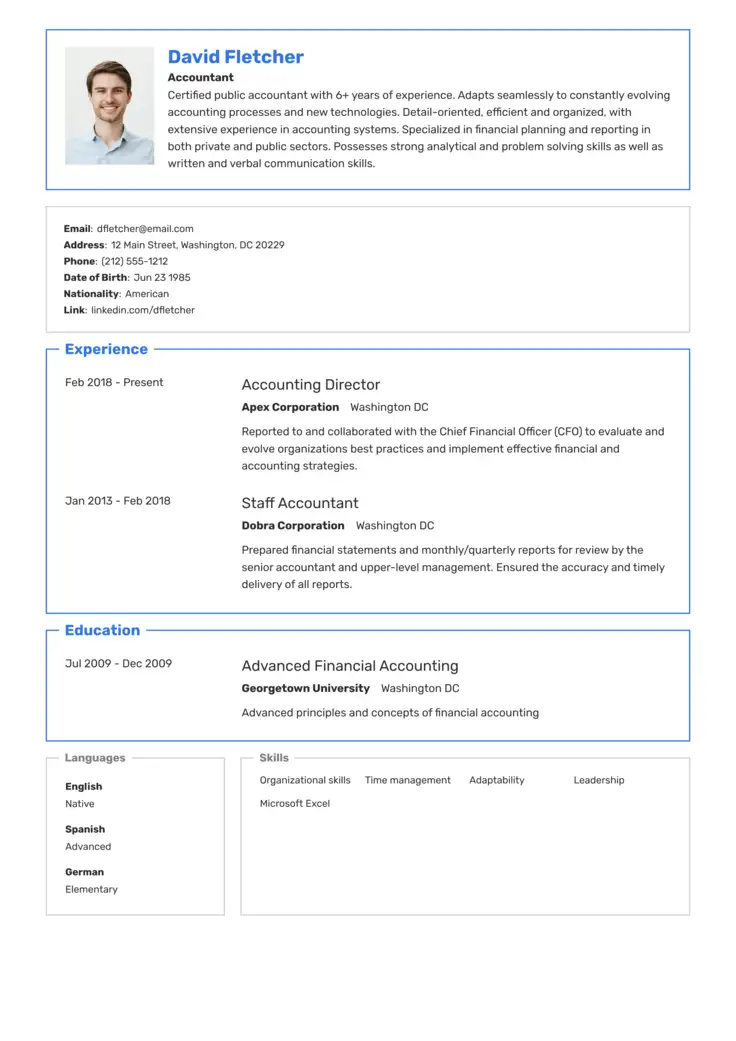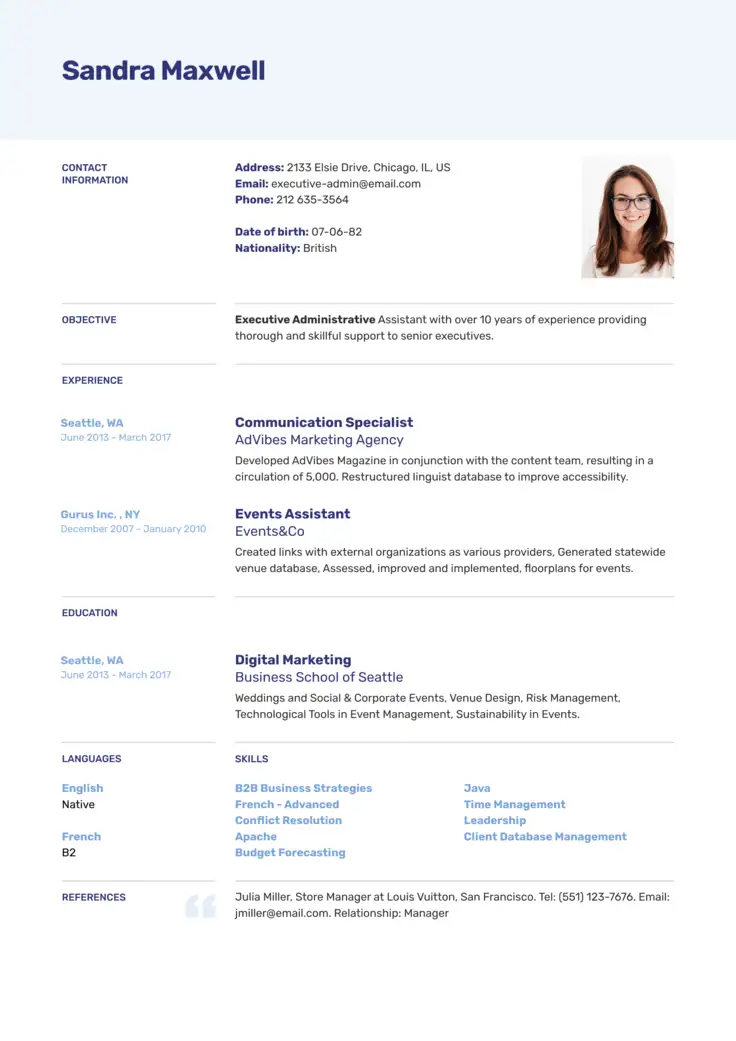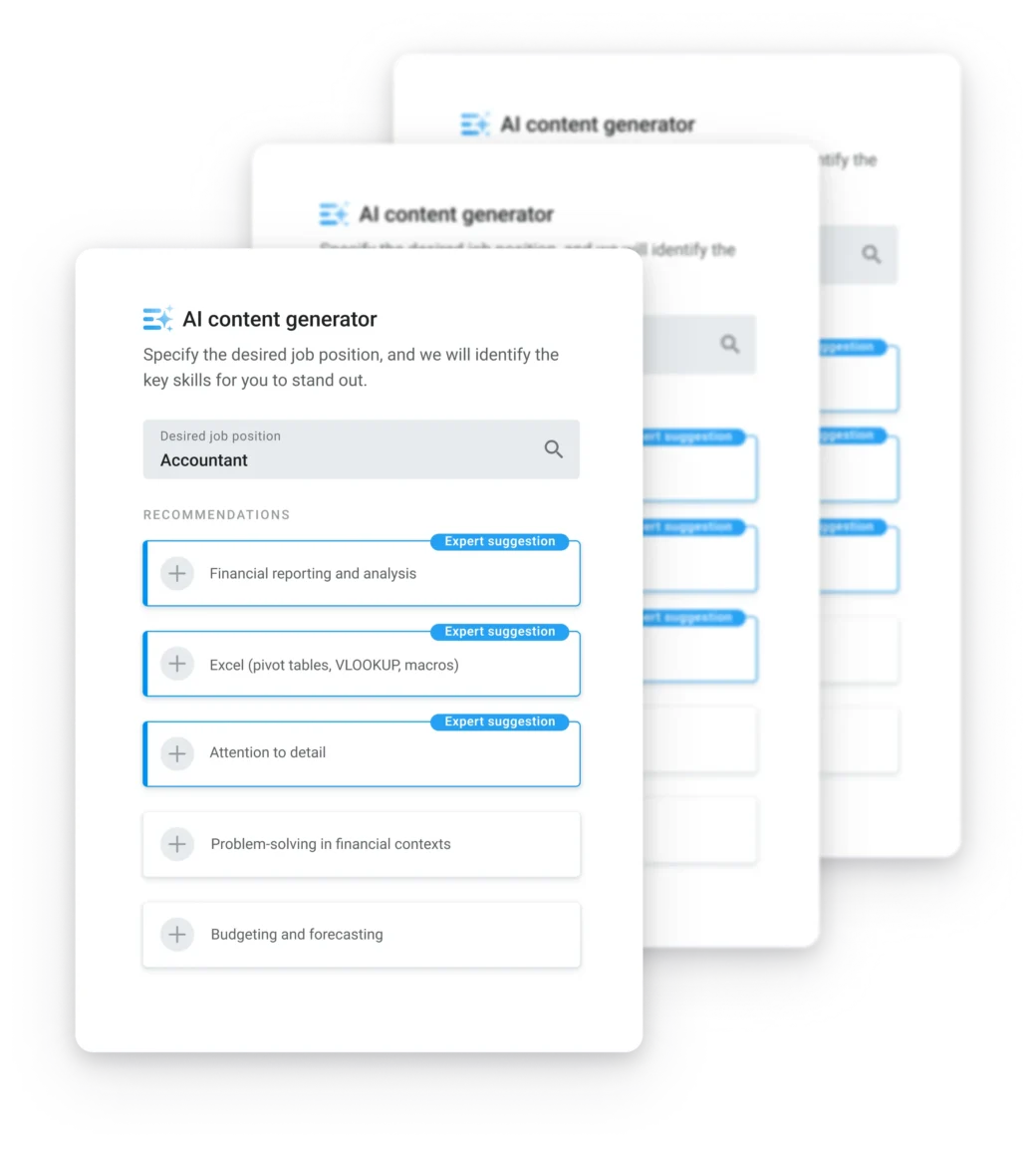ResumeCoach’s AI Resume Skills Generator
Worried your resume is missing key skills recruiters expect? Instantly create a list of the top skills in your field with our Resume Skills Generator. Grab hiring managers’ attention right away with impactful skills throughout your resume.
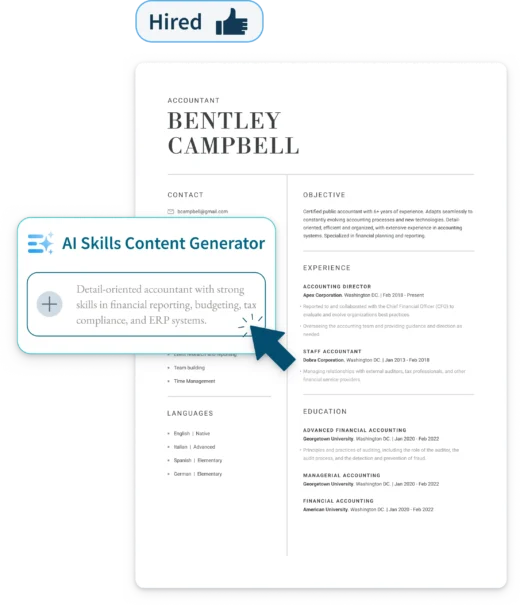
Job seekers using our tools have secured positions at:

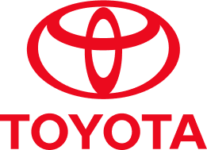

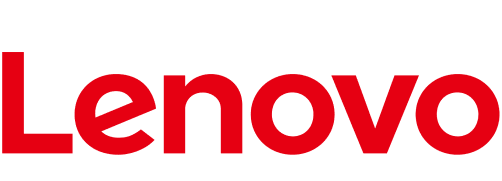
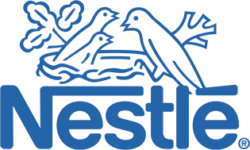

Show That You’re Qualified With AI-Generated Skills
Use our AI assistant to create a tailored list of the most relevant skills for your desired job. Build the perfect skill set to improve your resume and stand out to recruiters. With this innovative tool, advancing your career has never been easier!
Impress employers and recruiters with a professional resume that stands out. Choose from various templates designed for different roles, industries, and locations.
What ResumeCoach’s AI Resume Skills Generator Provides
With our Job Skills Generator, you can highlight the top skills employers want and make your resume stand out. Take a look at what ResumeCoach’s Skills Generator has to offer:
-
1. Perfect match with job requirements
Get a personalized list of skills in seconds based on your target job title with just a click using our intuitive AI Generator.
-
2. One-click resume updates
Easily add skills to your summary, work experience, or dedicated skills section without leaving the builder.
-
3. Avoid missing key skills employers screen for with ATS
Your skill list is formatted to pass ATS filters, improving your chances of getting noticed by recruiters.
-
4. Saves hours of research
No more scanning endless job descriptions to figure out what to include. Our generator does the heavy lifting for you.
-
5. Confidence when applying
No need to worry about whether your resume is missing anything important. Take it easy knowing that your AI-generated skills list is tailored to your sector.
ResumeCoach’s resume tool uses the latest AI technology to guarantee that you receive the most relevant and up-to-date skills for your job application.
Our tool:
- Analyzes job titles
- Matches industry trends
- Suggests skills recruiters look for right now
It’s like having a personal career coach at your fingertips. Don’t miss this opportunity to create your resume today!
How To Use ResumeCoach’s AI Skills Generator
Just like ResumeCoach’s AI resume builder, our Job Skills Generator is easy to use, and you can get the results you need in just a few clicks. Simply follow the steps below:
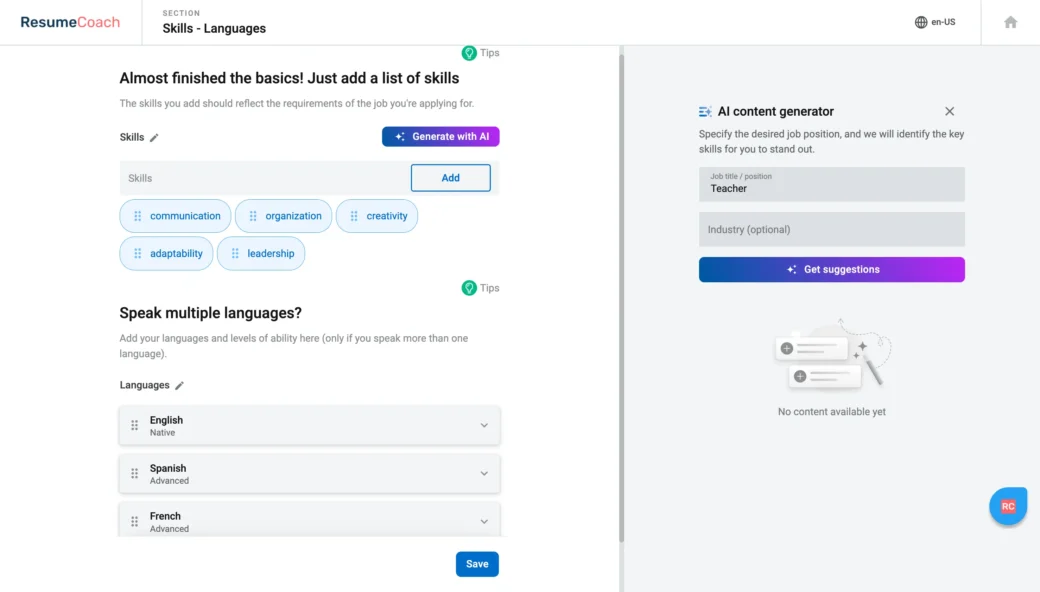
1. Define your desired profession
Start by choosing the profession you want to focus on. Once you do, the system will generate the relevant information for the next steps.
2. Get a list of relevant skills
You’ll receive a list of 10 skills that are key to the profession you’ve selected. These skills are tailored to the role you’re aiming for.
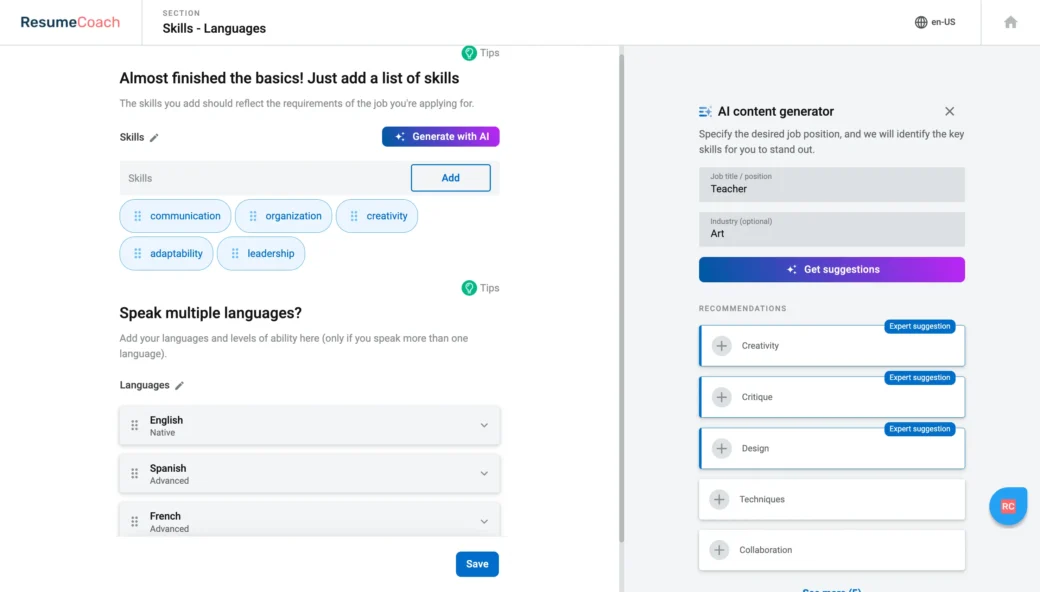
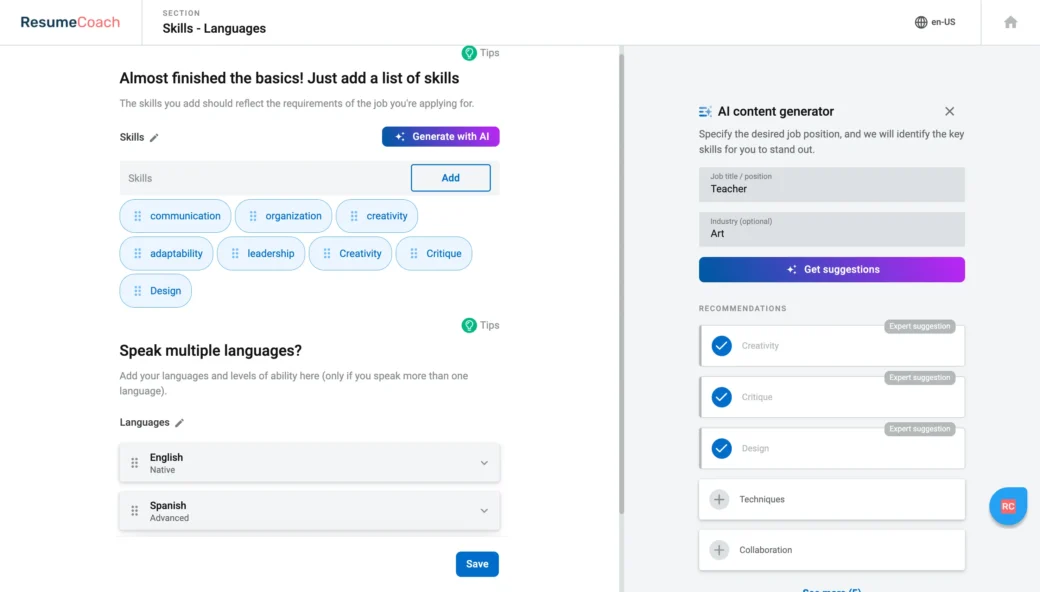
3. Select skills for your resume
Next, you can choose which of these job skills you want to include in your resume. Pick the ones that best match the job you’re applying for.
4. Edit the skills if needed
If necessary, you can edit the selected skills by adding, adjusting, or removing them. This lets you personalize your resume to better match your qualifications.
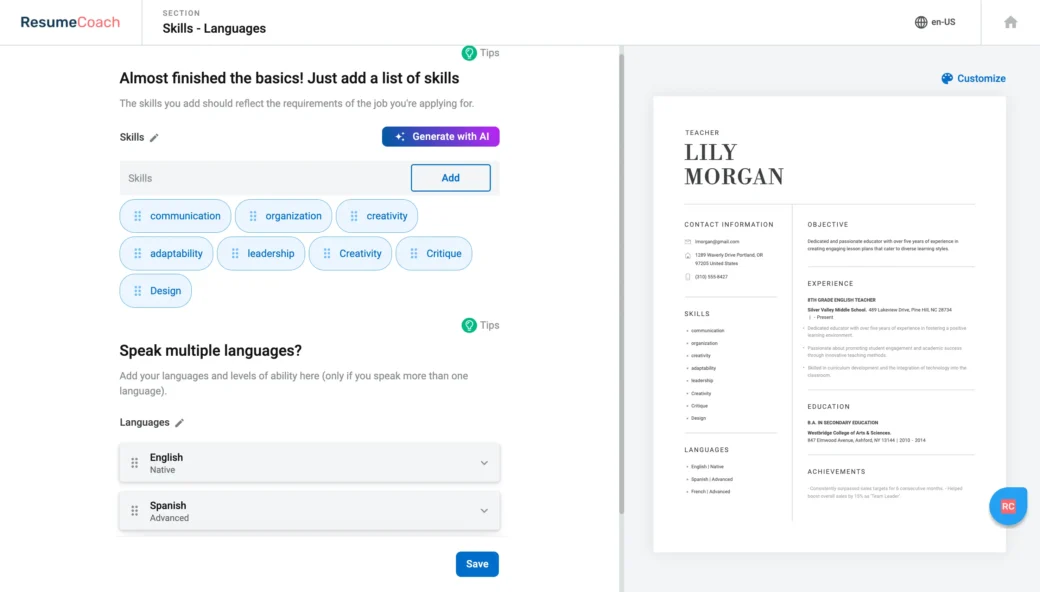
Frequently Asked Questions
Yes, our Job Skills Generator is designed to work for any job application across various industries, such as tech, marketing, healthcare, and more. Our tool generates relevant skills tailored to your specific role and profession.
There are several ways to highlight your job skills. Start by identifying the top skills that match the job application. Next, add them to your Skills section, making it easy for recruiters and ATS to spot your application. You can also highlight these skills in your Experience and Summary sections.
Yes, the skills list generated by the AI is fully customizable. You can edit, add, or remove skills based on your preferences and the specific job you’re applying for.
The AI skill generator analyzes job descriptions, industry trends, and role-specific requirements to identify the hard and soft skills that best fit your target role.
It guarantees that the skills suggested match the employer’s expectations and current market demands. You can then add or remove as many as you like.
Trending skills include generative AI skills (like ChatGPT and prompt engineering), alongside data analysis, Python, and SQL.
AI is especially valuable because it shows you can use modern tools to streamline tasks, analyze information, and improve productivity. Highlighting AI knowledge can set you apart as companies increasingly prioritize these skills.

